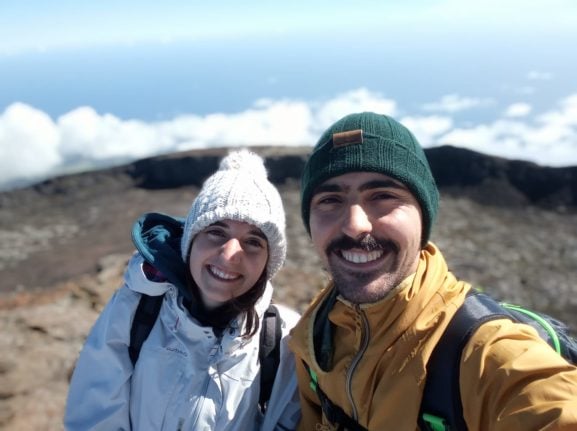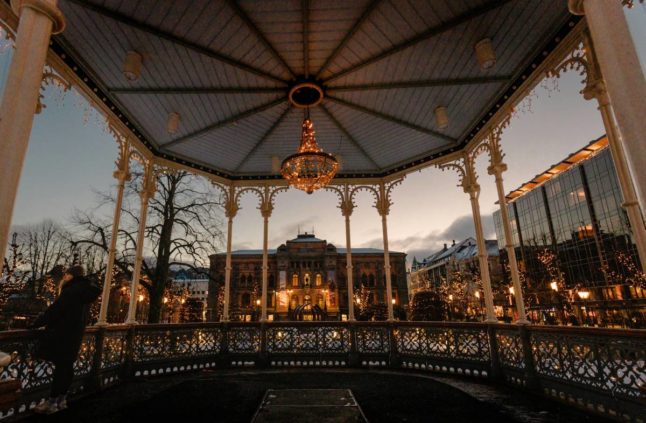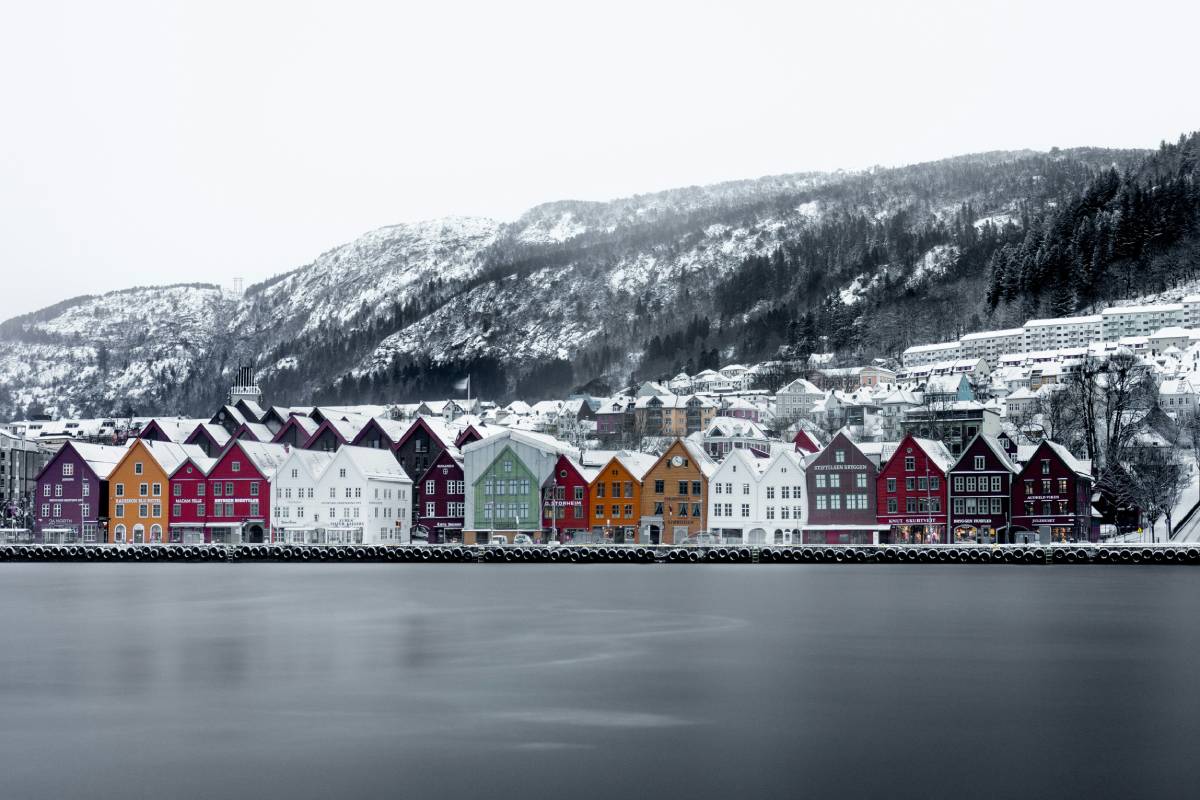Ana Theresa Capucho, 25, and her partner Pedro Cunha, 27, from Porto, Portugal, were elated when they found out Ana had been offered a job as a researcher at the University of Oslo’s Natural History Museum.
“We were really excited, for me, the job I have been offered is my dream job,” Ana said.
She was offered the job in December last year, but almost six months on, Ana still hasn’t started.
“I knew it would be a while, but I didn’t think it would take this long,” she explains.
Norway introduced strict border controls in January, meaning very few people outside of residents or citizens are permitted to enter the country.
The restrictions came as a big blow to Ana, who fell in love with Scandinavia while studying in Sweden.
“It feels awful. I was looking forward to moving to Norway because I studied for my Master’s in Sweden and loved the Scandinavian lifestyle; that was a big part of the reason I was so excited,” she said.
The 25-year-old has a Master’s degree in biology. Her new job was part of a project researching the diversity of marine invertebrates along Norway’s coasts. The Norwegian government helped fund the project, providing three million kroner to support the research.
Lead researcher, Prof. Dr. Torsten Hugo Struck, said the government’s entry restrictions are delaying the project and potentially affecting its ability to meet its goals.
Struck also strongly criticised the restrictions and their application.
“A completely other matter is how this treatment of Ana by the Norwegian government and others like her is inhumane and arbitrary as Norwegians and certain groups of people are still allowed to enter the country. The decision is not data-driven and is discriminatory as it is only based on nationality as people with the right social security number (fødselsnummer) are allowed entry,” he said.
As the restrictions have continued, Ana, who, with her partner, is paying 14,000 kroner a month for an apartment in Oslo while still in Portugal, finds herself feeling depressed and demotivated by the situation.
“I am still excited, but from time to time I get demotivated as it’s been so long since I got the job; even though I know the job is waiting for me, it’s hard not knowing when I will be able to move there,” she said.
“Sometimes I feel depressed with the whole situation. Some weeks feel better, and I am a bit more optimistic, especially when the government presented its opening plan. Then I was hopeful. But it was an anticlimax,” Ana added.
Prime minister Erna Solberg presented earlier this month a plan to gradually lift coronavirus restrictions. The plan didn’t offer any specific details or dates regarding travel. This has made the situation highly stressful for Ana, who said that she and Pedro have had their bags packed for over a month.
“It’s stressful because if we knew we were only waiting a month and a half, then we could plan. But we have no idea. It could be next week, or it could be two months we just don’t know, and that’s stressful,” she said.
READ MORE: When will I be able to travel to and from Norway again?
Ana has a contract for two years. Pedro, who also has a Master’s degree in biology, has also found a job in Norway. They have had to rebook their tickets four times already but are hoping to travel on May 16th, three days after the current restrictions are due to end.
Despite initially supporting the entry restrictions Ana now feels that they are unfair.
“There’s a lot of things that feel unfair. But the main thing is that when the entry ban was introduced, I felt like it was the right thing to do due to the more infectious Covid variants. But now it has been three months, and nothing has changed,” she said.
Ana noted that she still can’t enter the country despite having already had Covid-19 which means she can document that she has antibodies.
Pedro said that he feels the situation violates free movement rights, which apply for EU citizens in EEA country Norway.
“Despite being Portuguese citizens, that, like Norway, belong to the EEA, we are banned from the country. At first, these measures were to prevent the risk of additional infections. Still, three months later, it just seems like an unfair stop on immigration,” he said.
“This was a country that a few months ago gave us everything only to take it all away. Norwegians saw our potential and value, but it seems their government continues to disagree with them firmly,” Pedro added.
The Local Norway has contacted the Norwegian Directorate of Immigration to request comment.
As things stand, the earliest Ana and Pedro can embark on their new lives in Norway is if restrictions are eased in May. If not, then the next possible opportunity could be step three of the country’s reopening plan, which has no set date.




 Please whitelist us to continue reading.
Please whitelist us to continue reading.
It was very good to read this article, because I am in a very similar situation. Since March I have a job and pay for an apartment in Norway, but now have to live temporarily with my parents, because I had already quit my apartment in Germany. I am a student and therefore do not have much money at my disposal. The situation is getting more and more frustrating. At the beginning I really understood the strict entry regulations, but meanwhile you read more and more articles in the Norwegian news that the reopening is taking place, you can drink alcohol in bars again or meet in larger groups and have parties. How does that relate to people who just want to work in Norway and are still not allowed to enter? I am willing to do as much testing as necessary and go to a quarantine hotel for 10 days at my own expense, but I am not allowed. These strict regulations are no longer comprehensible and really just start to feel inhumane and discriminatory.
Thank you that through this article is made aware of the issue and our situations!
As you said Julia, it was very good to read the article knowing that it seems to be a more widespread issue. I fully agree with the article that the regulations seem to be extreme for the situation right now. I am also in the same situation as Ana, Pedro and Julia. My partner got offered a job in Oslo (I’m still searching), and we found an apartment quickly after before the regulations took effect. However, due to the strict regulations we are unable to move. And since we are fresh out of our masters we could no longer stay in a student apartment in Sweden. The result now is that we are paying for an apartment in Oslo and an extra Airbnb in Sweden. Going home (he is from Greece, I am Dutch) is also not an option because we still have all our stuff here and nowhere to store it.
Additionally, since you cannot request your tax number without identifying yourself in person, instead of the 25% income tax of the PAYE scheme, it has been upped to 50% income tax until there is a tax number. All of this together means that we are eating through all our savings, with no real finish line in sight. A call with UDI just resulted in ‘I’m sorry we can’t do anything for you’.
We would also be more than willing to test multiple times, go to a quarantine hotel for 10 days if it means we can enter instead of living in this extremely frustrating limbo.
I’m in exact same situation. I got my Work Permit on 27th January and the next day they announced the restrictions on a very short notice and I’m also stuck outside. It’s like you’re jobless with a job and burning off all your savings.
I just can’t believe that the entry requirements for people like us still haven’t been changed….the numbers have been good and Norway announced with the second stage in their opening plan to introduce relaxations for close family and work travelers and now these have just been postponed to the next stage in mid june. It is no longer justified that people with jobs and homes in Norway are not allowed in the country for such a long time. The situation could not be any more frustrating.